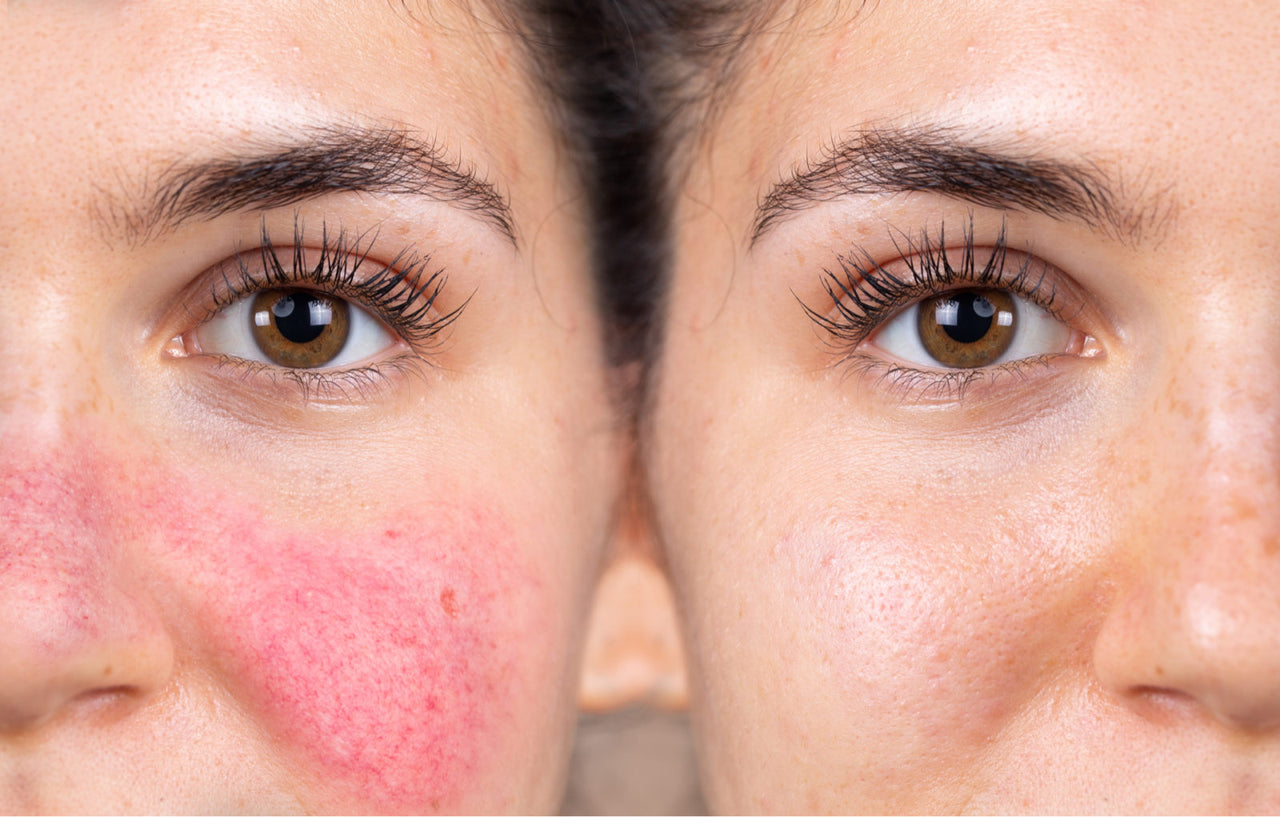Introduction
Rosacea is a chronic skin condition that affects millions worldwide, causing redness, flushing, visible blood vessels, and sometimes acne-like bumps. While it’s not fully curable, it can be managed effectively through the right skincare, diet, and lifestyle adjustments. Understanding your personal triggers is the first step toward calmer, healthier skin.
What Is Rosacea?
Rosacea is an inflammatory skin disorder that commonly affects the face—cheeks, nose, chin, and forehead. It can flare up in cycles, worsening when exposed to triggers like heat, stress, or certain foods.
Common Symptoms:
-
Persistent redness or flushing
-
Visible broken capillaries
-
Bumps or pustules resembling acne
-
Burning, stinging, or dryness
-
Thickened skin (in severe cases)
Skincare for Rosacea
1. Gentle Cleansing
-
Use fragrance-free, sulfate-free cleansers.
-
Avoid hot water, which worsens flushing.
2. Barrier Support
-
Moisturizers with ceramides, hyaluronic acid, and squalane help restore balance.
-
Look for calming ingredients like panthenol, allantoin, and aloe vera.
3. Sun Protection
-
UV rays are a major rosacea trigger.
-
Use a broad-spectrum mineral sunscreen (zinc oxide, titanium dioxide) that’s lightweight and non-irritating.
4. Avoid Harsh Actives
-
Limit exfoliating acids, alcohol-based toners, and strong retinoids.
-
If using actives, introduce slowly and buffer with moisturizer.
5. Soothing Ingredients to Try
-
Niacinamide – reduces redness and strengthens barrier.
-
Green tea extract – antioxidant and calming.
-
Chamomile & oat extract – relieve irritation.
Dietary Considerations for Rosacea
Certain foods and drinks can worsen flare-ups.
Common Dietary Triggers:
-
Spicy foods
-
Hot beverages (coffee, tea)
-
Alcohol (especially red wine)
-
Dairy products (in some people)
Skin-Friendly Diet Tips:
-
Eat anti-inflammatory foods: leafy greens, berries, fatty fish, turmeric.
-
Stay hydrated to keep skin balanced.
-
Monitor your diet with a trigger journal to track personal sensitivities.
Environmental & Lifestyle Triggers
Rosacea flare-ups are often linked to daily surroundings.
-
Heat & Sunlight – wear SPF daily, seek shade.
-
Cold Weather & Wind – use protective moisturizers and scarves.
-
Stress & Lack of Sleep – manage with relaxation techniques and consistent rest.
-
Exercise – opt for cooler environments and gentle workouts to avoid overheating.
Professional Treatments for Rosacea
If over-the-counter routines aren’t enough, dermatologists may recommend:
-
Topical prescriptions (metronidazole, azelaic acid).
-
Oral medications (antibiotics or anti-inflammatories).
-
Laser or light therapy to reduce redness and visible vessels.
Key Takeaway
Managing rosacea is about understanding your unique triggers and building a gentle, protective routine. By combining soothing skincare, smart diet choices, and trigger awareness, you can reduce flare-ups and keep skin calm.
At Purelab Care, we craft halal-certified, barrier-supportive skincare designed to soothe inflammation and respect sensitive skin—because everyone deserves products that bring comfort, not compromise.



